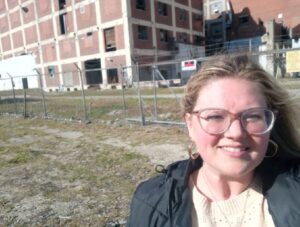What is Community Psychology?
Social justice. Action-oriented research. Global in nature. Influencing public policy. Working for empowerment. Multidisciplinary in focus. Celebrating culture. Preventing harm. Behavior in context. Social action. Supporting community strengths. Reducing oppression. Promoting well-being. Scientific inquiry. Honoring human rights. Respecting diversity.
Community psychology goes beyond an individual focus and integrates social, cultural, economic, political, environmental, and international influences to promote positive change, health, and empowerment at individual and systemic levels.
Featured New Content
Intergenerational Care Programs and the Future of Rural Communities
Posted in: Aging, Children, Youth and Families | Tags: Featured ContentPublished in: The Community PsychologistLiving in a rural area can come with various challenges. One of the greatest needs for children and older people in rural areas is access to essential services such as long-term care facilities and daycares. Intergenerational care facilities may be an option.
Immigrants Who Actively Participate in Receiving Communities have Better Mental Health
Posted in: Marginalized Groups, Sense of Community | Tags: Featured ContentPublished in: American Journal of Community PsychologyActive community participation is positively associated with a sense of community and adding value which, in turn, increases immigrant wellbeing. Supporting organizations in their outreach to immigrants and promoting their active engagement in the community can contribute to support immigrant mental health.
Counterspaces: Fostering Healthy Identity Development
Posted in: Anti-Racism, Education, Marginalized Groups, Sense of Community | Tags: Featured ContentPublished in: American Journal of Community PsychologyThe Cultural Identity Project facilitated a space where students spoke to their own empowering actions developing from critical awareness, healing, and solidarity. People with power in any system must work to uproot oppression for spaces to live up to their potential.
The Power of Policy: Business Closures in Rural Communities
Posted in: Poverty and Socioeconomic Status, Rural Communities | Tags: Featured ContentPublished in: The Community PsychologistTwenty percent of the population, or one out of five people, live in rural USA, where the rural population holds 12.4 percent of the manufacturing jobs. Deciding what to do with closed plants or manufacturers is an environmental issue and a public health issue. Outside of the immediate loss of jobs, the impact of closures […]
Blog: We Said It’d be Meaningful Not Easy: Navigating the (Unexpected) Hardships of Qualitative Research
Posted in: Blog, Children, Youth and Families, Prevention Science | Tags: Featured ContentPublished in: The Community PsychologistThe Hope Resilience Action Study was developed by Black and Latina women scholars to amplify the lived experiences of Afro Latina/Caribbean, Black, and Latina girls. The study required review by the institutional review board (IRB). The IRB reviewers shared concerns about inclusive definitions of gender and sexual orientation. This is what we did next.
Intersectionality & Ecological Systems Theory (Spanish Language)
Posted in: Environment, Public Policy | Tags: Featured ContentPublished in: The Community PsychologistCarlos and his colleagues apply psychological theory to practice. As a result, he and his colleagues advance genuine and sustainable change alongside the Mapuche people.
Featured Research
Using a Community Based Participatory Approach to Develop Parent Education for Parents of LatinX Youth
Posted in: Children, Youth and Families, Education, Marginalized Groups | Tags: Featured ResearchResearchers developed a curriculum to help parents and adolescents resist drugs and address risky behavior. A Community Based Participatory Approach accounted for multiple factors including the individuals, their environment, culture, and societal expectations.
Touchy Topics Tuesday: An Interracial Dialogue Program Promotes Understanding
Posted in: Anti-Racism, Coalition Building | Tags: Featured ResearchPublished in: American Journal of Community PsychologyTTT participants engaged in behavioral shifts that can impact the racially segregated status quo. By understanding what motivates people to engage in groups like TTT, we can learn how to bring more people into discussion about racial justice.
Using PBIS to Lower Learning Distractions and Build Greater Organizational Health in Schools
Posted in: Children, Youth and Families, Education | Tags: Featured ResearchPublished in: Prevention SciencePBIS has shown effectiveness in Maryland elementary schools. The effectiveness of PBIS is higher in schools starting with lower organizational health scores. PBIS can be applied in other settings; but effectiveness is not yet known.
Suicidal Ideation in African American 9th and 10th Graders
Posted in: Anti-Racism, Children, Youth and Families | Tags: Featured ResearchPublished in: American Journal of Community PsychologyAfrican-American adolescent suicide is a public health issue that stems from systemic racial inequities. A better understanding of how suicidal ideation manifests and the associated risk factors in African American youth helps inform more responsive and effective suicide prevention efforts.
Supports that White Mentors and BIPOC Mentees Need
Posted in: Children, Youth and Families, Marginalized Groups | Tags: Featured ResearchPublished in: American Journal of Community PsychologyThere is often a mismatch between volunteer mentors’ backgrounds and the diverse youth they serve. Anti-racism training and applying a social justice framework throughout the mentor-mentee relationship may be important to their success.
Taking a Strengths-Based Perspective for Community-Level Interventions and Policies with Black Men
Posted in: Marginalized Groups | Tags: Featured ResearchPublished in: American Journal of Community PsychologyThere is a gap in the research on the social-structural and community resources that enhance the resiliency of young Black men in the United States. We must shift our focus to emphasize the strengths and environmental attributes that facilitate the positive development and health of young Black men.













